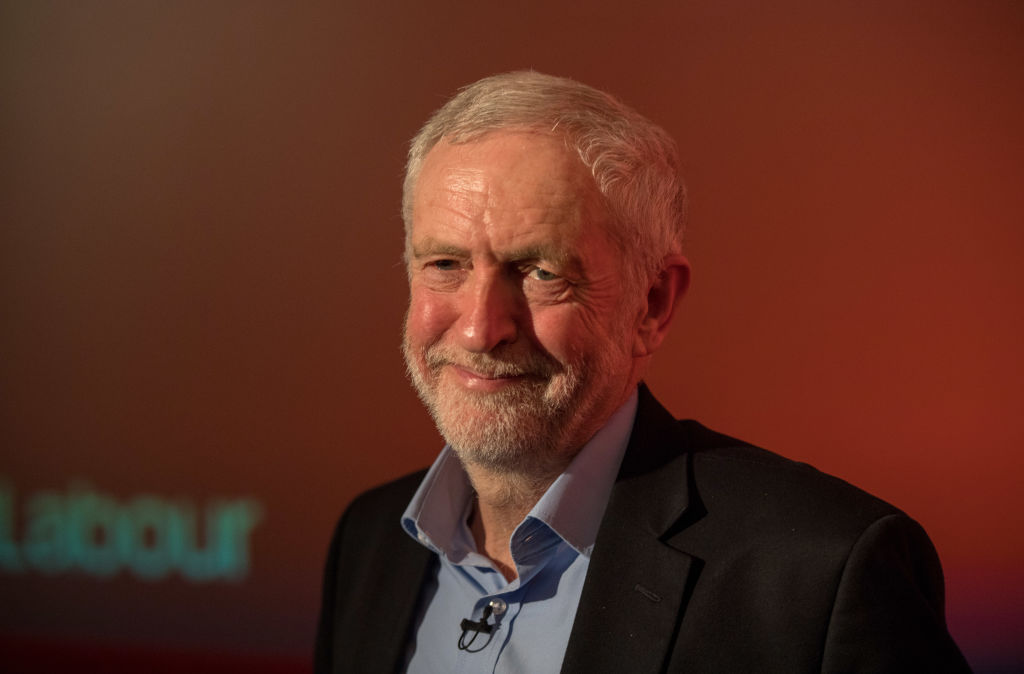The row over Jeremy Corbyn’s alleged contact with a Czech spy rumbles on. In its editorial, the Sun condemns the Labour leader, who it says has questions to answer over his ‘dealings with foreign spies and diplomats’. Labour is no stranger to ‘dodging basic questions’, the paper argues. But while it can get away with refusing to answer on issues such as the ‘economy or defence…this is a different kettle of fish’. Some have dismissed the allegations as unimportant given that they happened so long ago; others have said the stories were are simply ‘fake news’ – yet this ignores the documents suggesting there was contact between Corbyn and a foreign diplomat. Even those who have been critical of Corbyn in the past – particularly Labour moderates – have been noticeable by their silence in response to this story. But this does not mean that Corbyn should not provide an explanation, the paper argues. The Sun concludes its editorial with a message to the Labour leader: if he ‘has nothing to hide about his dealings with Eastern Europe’s vicious secret police forces’ he can prove it by allowing his Stasi file, the release of which only he can approve, to be published. ‘As his Soviet pals used to say: Papers, please,’ the Sun says.
Meanwhile, the Times focuses its editorial on Theresa May’s planned shake-up of university funding. In a speech this afternoon, the PM will announce a review into tuition fees. But the Times is not excited by the prospect: ‘Not another one’, the paper says. It would be ‘bad policy and bad politics’ to opt for a ‘radical overhaul’ of a system which is, for the large part, working well. After all, while it is widely seen as a popular measure, cutting tuition fees is an idea which would do little to change things for the better. Graduates’ debt is, ultimately, written off if they don’t pay it back, the paper points out. It is also true, says the Times, that ‘there is virtually no evidence’ to suggest cutting fees would encourage a greater number of less well-off students to go to university. Indeed, ‘scrapping fees would cost £11 billion’, and for what? Granting ‘rich graduates’ a ‘subsidy’ paid for by ‘poorer non-graduates’. Of course, ‘senior Tories’ know these arguments all too well. Yet their fear of Corbyn and desperation to ‘appeal to younger voters’ means they are happy to ignore the facts. They should stop doing so, says the Times. ‘the way forward is clear already, and it does not involve top-down tuition fee cuts. A minister with some mettle needs to say so,’ the paper concludes.
The Daily Telegraph says that the Education Secretary Damian Hinds’ latest intervention ‘risks compounding past mistakes’. The Tories’ plans are not all bad, says the paper, which points out that two-year sandwich degree courses would prove a popular measure if rolled out more widely. But do we really need the Government to meddle in universities’ business yet again? The paper warns that ministers’ plans could lead to ‘additional complexity’ and more fed-up, unemployed graduates saddled with big bills for tuition fees. What’s more, is it really right that an arts degree from Oxford would cost less than one in ‘sciences at a former polytechnic’ as the Government appears to be proposing. ‘Ideally a different price would apply for every course at every institution’, the paper suggests. This will allow ‘good universities’ to charge more, while ‘courses that cost more than they benefit will fold’. It is time to let the market do what it does best and be allowed to work, concludes the Telegraph.







Comments